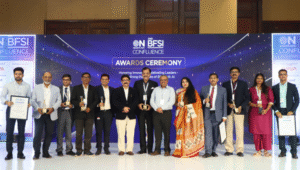What Funding Winter 2024 Taught Startups: Lessons for 2025 and Beyond

The year 2024 will go down in history as a testing yet transformative period for startups around the world. In India, for instance, the “funding winter” – a period of dwindling inflows of venture capital and increasingly skeptical investors – taught entrepreneurs to think and rethink strategies and priorities. While the slowdown was stressful, it also presented a moment of introspection and rebalancing. It is during this time that lessons are learned to get prepared for the next big event in 2025, as the ecosystem transitions.
The Road to Profitability
For years, startups pursued high-speed growth, which was fueled more by aggressive customer acquisition and expansion strategies into markets in which scale trumped sustainability. The funding winter laid bare the weakness of that strategy. Investors, wary of cash burn without a clear return, turned to profitable paths for their startups. And the message was clear: growth that is sustainable is not optional; it is required.
This wake-up call to the founders should bring about the need to balance ambition with prudence on finances. The startups need to show that they can have sustainable revenue streams and cut down costs without losing quality. The growth at all cost era has officially ended.
Leaner Operations, Stronger Foundations
When money ran out, start-ups had to review their business. Most streamlined processes, eliminated redundancy, and focused on key functions. Though very painful, such steps resulted in leaner and more efficient organizations better placed to survive the economic turbulence.
This focus on operational efficiency has demonstrated the worth of resourcefulness. Startups that invested in automating processes, focused attention on high-impact work, and created cultures with accountability have been well served to ride out the decline in market conditions. These will still be of great use after the market recovers.
Broadening Financial Horizons
One of the major revelations of this funding winter is that too many companies were reliant on venture capital. The companies that diversified funding through revenue, debt financing, or strategic partnerships performed significantly better. Building multiple financial lifelines for companies helped to reduce risks.
Looking ahead, start-ups should look for alternative funding sources. Sources such as crowdfunding, revenue-based financing, and grants provide much flexibility and reduce dependence on VC funding. Diversification brings not only the security of capital but also resilience in uncertain times.
Returning to Core Competencies
Many startups in the boom years dabbled in peripheral markets or developed products outside their area of expertise to achieve fast growth. The funding winter compelled them to get back to basics by refocusing on their core competencies and core markets.
This calibration has proved that depth often beats breadth. This is because by concentrating on what they do best, startups will produce stronger value propositions and deeper customer loyalty. Diversification can be valuable but it has to make sense for a startup’s long-term strategy and capabilities.
The Bootstrap Mindset
With external funding drying out, many startups embraced a bootstrap mentality-that is, organic growth fueled only by internal resources. A bootstrap mentality breeds creativity, a virtue of financial prudence, which proves the great point that innovation only feeds on constraint.
Adopting the bootstrap mentality does not avoid having funding altogether. In its place, it will drive frugality with much intentionality in spending that serves a strategic purpose on everything. This cultural will make a difference long after this so-called funding winter has thieved.
The Power of Trust
Startups that communicated openly with stakeholders throughout the downturn built goodwill that money cannot buy. Open communication about problems, plans, and progress built trust with investors, employees, and customers.
Trust is an asset that compounds with time. By emphasizing open and honest communication and shared responsibility, startups can develop trust-based relationships that last beyond a cycle of growth and then contraction.
Agility During Change
If 2024 taught startups anything, it’s that adaptability is non-negotiable. The ability to pivot—whether by targeting new customer segments, altering product offerings, or reimagining business models—separated the resilient from the rest. Startups that embraced change with open arms not only survived but often thrived.
Agility should remain a cornerstone of startup culture. Encouraging teams to experiment, fail fast, and iterate ensures that organizations remain dynamic and forward-looking.
Preparing for a Resilient Future
As 2025 approaches, the lessons from the funding winter should be a blueprint for startups. The focus has now shifted from unchecked growth to sustainable, disciplined execution. Investors will also continue to prioritize startups with strong fundamentals, clear governance, and a commitment to profitability.
The storms of 2024 have shaped a more resilient startup ecosystem. Founders who learn from these lessons will not only survive future storms but also seize opportunities with much greater confidence and clarity. In many ways, the funding winter was less a setback and more a much-needed reset for a stronger and more sustainable entrepreneurial landscape in the years ahead.
Author: Appalla Saikiran, Founder & CEO, SCOPE
Disclaimer: The views expressed in this article are solely those of the author and do not necessarily reflect the opinions or policies of ObserveNow Media. The author is solely responsible for ensuring the accuracy, completeness, and validity of the information presented, encouraging readers to independently verify and seek professional advice if needed.
















